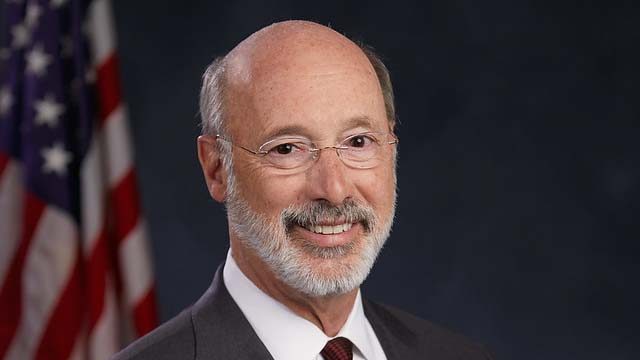
Pennsylvania Gov. Tom Wolf proposed a 5 percent increase in funding for state-related universities, including Temple University, during his final budget address Tuesday. Pending approval from the state legislature by July 1, the increase will be the first since the 2018-19 fiscal year.
If the state legislature approves Wolf’s budget proposal, Temple will receive $7.9 million to use for discounting in-state tuition, said Ken Kaiser, senior vice president for finance and operations and chief operating officer. This is $3.3 million more than Temple requested from the state’s budget office in September.
Temple’s base in-state tuition rate is approximately $16,488 for the 2021-22 academic year, but is as high as $23,208 for the Tyler School of Art and Architecture’s fine art program.
State funding only accounts for 14 percent of Temple’s budget this year, while 79 percent comes from tuition and fees.
Even if Wolf’s increase is approved, Temple may not freeze or reduce tuition for in-state students next year. Most of Temple’s budget is driven by tuition and enrollment, so for Temple to freeze tuition next academic year, enrollment would also need to increase, Kaiser said.
“If enrollment were to go up, that would bring more revenue, that means you don’t have to rely on tuition as much,” Kaiser said. “If enrollment’s going down, then you need to rely on other things, such as tuition and budget efficiencies.”
Temple expected enrollment to decline by about 1,400 students during the 2021-22 academic year, which is one reason Temple’s Board of Trustees approved a 2.5 percent increase in the base tuition rate for all students in July 2021 – the first increase since the 2018-19 academic year.
Wolf’s proposed increase is part of the $125 million additional funds he allocated for higher education spending, according to a statement from the Pennsylvania Budget and Policy Center.
Education has been a priority for Wolf during his time as governor and was one of his main points of discussion during his budget address.
“If you’re a Pennsylvanian worried about how you’re going to support your family, or if you don’t know how you’re going to pay for your kid’s college education, or if you’re struggling to keep up with the rising costs of everything from groceries to health care, you don’t want to hear about how far we’ve come over the last seven years,” Wolf said at his address on Tuesday. “You want to know what we’re going to do next.”
Temple President Jason Wingard and a team, that usually consists of the university’s communications, government relations and finance departments, will travel to Harrisburg on March 3 and 8 to attend budget hearings in the state House of Representatives and state Senate.
From there, state representatives and state senators will debate Wolf’s proposal and representatives from Temple’s government relations department will continue lobbying policymakers.
Temple will increase its lobbying efforts in Harrisburg in hopes of convincing the state legislature to approve Wolf’s proposed 5 percent increase, said George Kenney, associate vice president and senior advisor for government affairs.
“Every day we’re out advocating for this investment,” Kenney said. “We’re talking to legislators every day, we’re in Harrisburg, the budget meetings start Tuesday, so we’ll be in Harrisburg just advocating for support.”
Last month, Wingard met with Wolf in Harrisburg to discuss state appropriations, higher education in the United States, job availability in Pennsylvania and Temple’s contributions to the workforce.
Kaiser is “cautiously optimistic” the state legislature will approve the 5 percent increase because of Pennsylvania’s financial security and the upcoming midterm elections pushing the state’s general assembly candidates to fund higher education.
Wolf will be leaving office with a budget surplus, according to the governor’s website.
“Right now, they’re strong financially, so they’re not going to be looking for a lot of cuts everywhere,” Kaiser said. “And then secondly, it’s an election year for a lot of folks, and so it’s hard to get votes when you voted to keep a school flat or cut their budget because ultimately your opposition will use that against you.”
Even though Temple’s state funding has remained stagnant for years, Kaiser is satisfied with Wolf’s allocations because he’s never decreased Temple’s commonwealth appropriation, he wrote in an email to The Temple News.
“I think he wanted to increase higher ed funding more than he was able to, but I acknowledge and understand the challenges that he faced over his eight years, but at Temple, we’re grateful for everything he’s done for all the state-related universities,” Kaiser said.



Be the first to comment